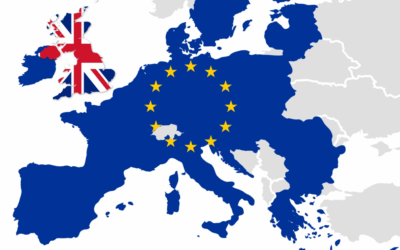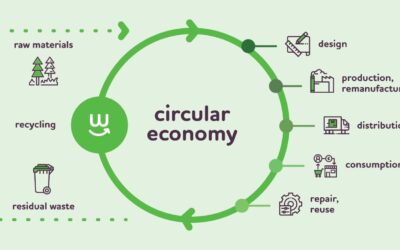
On February 23, 2022, the Commission put forth a proposal for a Directive concerning corporate sustainability due diligence. It is not yet approved, with the last edits of the directive’s text being done in March 2024. It is expected to be approved soon, however, the European elections in June 2024 might influence the outcome. This Directive seeks to promote sustainable and ethical corporate conduct, emphasizing the integration of human rights and environmental considerations into companies’ operations and governance structures. The forthcoming regulations will ensure that businesses actively address the negative impacts of their activities, both within and beyond European borders. This directive is focused on the due diligence, while the previously mentioned CSRD focuses on reporting. In essence, the CSDDD mandates that companies uphold environmental and social responsibilities, while the CSRD mandates transparency for European firms regarding these efforts. The goal is for companies to implement both directives in tandem if they fall within the scope of both.
The CSDDD is to be seen as a toolkit for companies. It not only aids in meeting their environmental and human rights obligations but also aligns with the requirements outlined in the CSRD for sustainability reporting. This synergy enables companies to present a comprehensive view of their sustainable and responsible practices within their organizations. It aims to bring different benefits for 3 categories, as following:
For Citizens:
- Enhanced safeguarding of human rights, including labour rights
- Creation of a healthier environment for both current and future generations
- Reinforced trust in businesses through heightened transparency, facilitating informed consumer choices
- Improved accessibility to justice for victims of violations
For Companies:
- Establishment of a harmonized legal framework across the EU, fostering legal certainty and a level playing field
- Cultivation of greater customer trust and heightened commitment from employees
- Raising awareness of the negative environmental and human rights impacts associated with company operations
- Strengthened risk management capabilities and increased adaptability
- Enhanced appeal to talent, sustainability-focused investors, and public procurers
- Elevated focus on innovation and improved access to finance
For Developing Countries:
- Enhanced protection of human rights and the environment
- Increased stakeholder awareness of critical sustainability issues
- Encouragement of sustainable investment practices
- Promotion of improved sustainability-related initiatives
- Encouragement of the adoption of international standards and improvement of living conditions for inhabitants
This Directive establishes a corporate duty of due diligence, encompassing key responsibilities such as identification, cessation, prevention, mitigation, and accountability for adverse human rights and environmental impacts within the company’s operations, subsidiaries, and supply chains. Moreover, certain large enterprises are required to devise strategies aligning with the Paris Agreement’s goal of limiting global warming to 1.5°C, thereby incentivizing directors to contribute to sustainability and climate change mitigation efforts.
Furthermore, the Directive imposes obligations on directors of covered EU companies, including the establishment and oversight of due diligence processes, and the integration of such practices into corporate strategies. Directors are also tasked with considering the human rights, climate change, and environmental ramifications when acting in the company’s best interests. Simultaneously, the businesses will have to cover the expenses associated with establishing and maintaining due diligence procedures, as well as the transition expenses, encompassing investments to adapt company operations and value chains to meet due diligence requirements, as necessary.
Enforcement of the new regulations will involve two parties:
- Administrative oversight: Member States will appoint authorities tasked with supervising and imposing effective, proportionate, and deterrent sanctions, such as fines and compliance directives. At the European level, the Commission will establish a European Network of Supervisory Authorities to ensure a coordinated approach.
- Civil liability: Member States will guarantee that victims receive compensation for damages resulting from non-compliance with the obligations outlined in the new proposals.
Enforcement of directors’ duties will rely on existing laws within Member States. The directive does not introduce an additional enforcement mechanism in case directors fail to fulfil their obligations.
Why does the EU need to foster sustainable corporate behaviour and responsible corporate governance?
The European Union seeks to promote sustainable corporate conduct and responsible governance due to widespread calls from various stakeholders, including civil society, EU citizens, businesses, and business associations. Seventy percent of businesses participating in the public consultation emphasized the necessity of EU action on corporate sustainability due diligence.
Businesses play a pivotal role in fostering a sustainable and equitable economy and society. While a third of companies acknowledge the need to address adverse impacts on human rights and the environment, progress remains slow and inconsistent. The complexity and global reach of supply chains pose challenges in obtaining reliable information on suppliers’ operations. Moreover, the diversity of national regulations on corporate sustainability-related due diligence impedes the adoption of best practices. Unilateral efforts by individual Member States are insufficient to fully unlock companies’ potential for sustainable action.
References
European Commission. (2023, February). Corporate sustainability due diligence. Retrieved from European Commission: https://commission.europa.eu/business-economy-euro/doing-business-eu/corporate-sustainability-due-diligence_en
worldfavor. (2023, October). CSDDD vs. CSRD: what’s the difference? Retrieved from worldfavor: https://blog.worldfavor.com/csddd-vs-csrd-whats-the-difference
Photo: Sustainable-Energy-Infrastructure-Header.jpg (940×350) (onecommunityranch.org)



